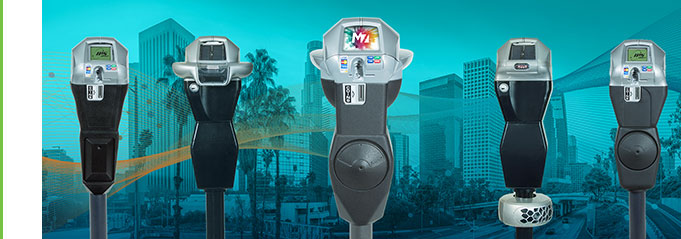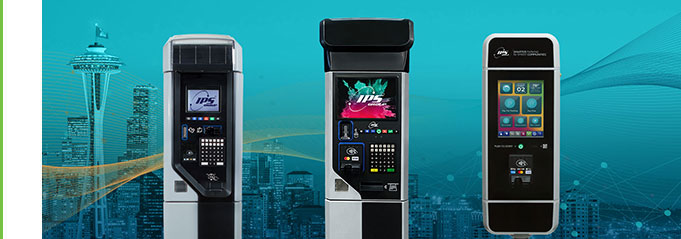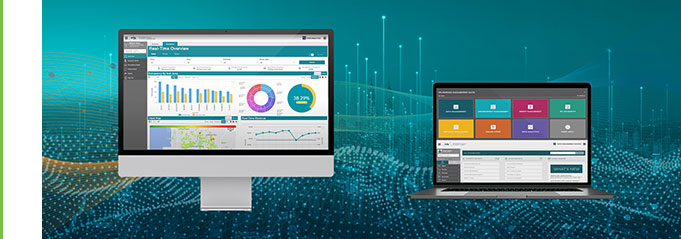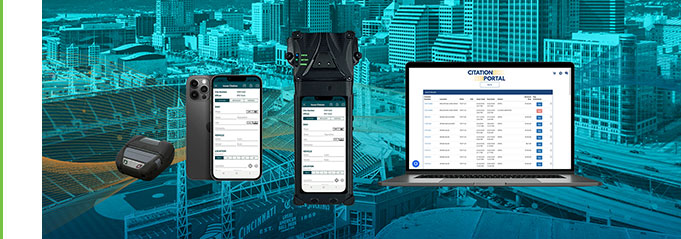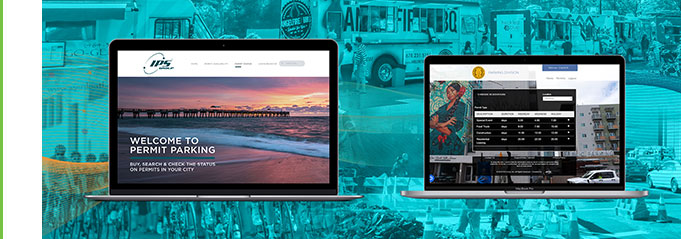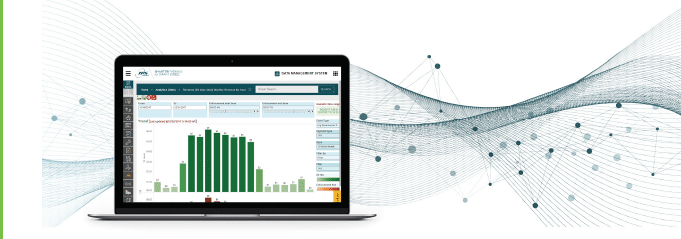FAQ
What is the difference between a Single-Space and a Multi-Space Meter?
A single-space parking meter manages and is located beside one parking space.
A multi-space pay station can manage multiple parking spaces, typically 6 to 8 on-street parking spaces and sometimes over 100 off-street parking spaces (such as in a parking garage).
Customers should consider public convenience, ease of maintenance and enforcement, total cost of ownership, and the application when deciding between single-space parking meters and multi-space pay stations.
What does Pay-by-Plate, Pay-by-Space, and Pay-and-Display mean?
Pay-by-Plate, Pay-by-Space and Pay-and-Display are three types of pay station payment configurations. While the machines function the same internally, the customer interacts differently with each configuration. To determine which configuration is right for you, consider total cost of ownership for both parking and enforcement technology, as well as public convenience, urban environments, and public policy.
Pay-by-Plate: User parks, walks to the central pay-station, enters the license plate number for the parked vehicle, makes payment, and optionally receives a receipt.
Pay-by-Space: User parks, walks to the central pay station, enters the space number where the vehicle is parked, makes payment, and optionally receives a receipt.
Pay-and-Display: User parks, walks to the central pay station, makes a payment, and receives a receipt that must be displayed on the vehicle (typically on the dash or window) to allow for proper enforcement.
What is the purpose of the Data Management System?
How can the Data Management System help me manage my parking?
The Data Management System (DMS) provides a comprehensive set of financial, technical, and administrative reporting features and remote meter configuration capabilities.
With the DMS, customers have the ability to monitor real-time maintenance needs, measure user trends to optimize the system configuration, and adhere to public policy. With easily accessible data, information is at your fingertips 24/7.
The IPS DMS is a truly integrated system, collecting data from single-space meters, multi-space pay stations, vehicle detection sensors, pay-by-cell capabilities, and enforcement applications into one single backend system.
What does my hourly rate need to be to consider Smart Meters?
Can I pass credit card fees onto the customers?
While it is possible to pass credit card fees onto customers, the ability varies by state depending on the local or state laws. To understand the variance, let’s first define the terms “convenience fee” and “surcharge fee.”
“Convenience fee” is defined as follows: “For merchants who offer an alternate payment channel (i.e., mail, telephone, or e-commerce) for customers to pay for goods or services, a convenience fee may be added to the transaction amount. If the merchant chooses to assess a convenience fee to its customers, the merchant must adhere to Visa rules.” (Source: Card Acceptance Guidelines for Visa Merchants, 06.APR.14).
“Surcharge fee” is defined as follows: “A payment card surcharge is a fee that a retailer adds to the cost of a purchase when a customer uses a payment card.” (Source: www.usa.visa.com)
Merchants are required to disclose the surcharges to consumers, provide notification to Visa and the Acquirer, and there are limits to the amount of the surcharge per transaction. Please note that some States explicitly prohibit credit card surcharges by law. However, there are also certain exemptions for Local and State Governments. Please contact your local merchant services provider, your local Visa/MasterCard representative, and your City Attorney’s office to determine the laws for your state.
For more information, visit:
https://www.knowyourcard.org
https://www.mastercard.us/en-us/merchants/get-support/merchant-surcharge-rules.html
How does credit card acceptance work?
Once a card is presented at an IPS meter, the card information is encrypted and wirelessly transmitted for authorization via the Level 1 PCI-DSS certified card payment gateway. The card is authorized by the issuing bank and time is placed on the meter. Complete transaction and settlement details are found in the IPS Data Management System (DMS).
What are interchange fees?
Interchange fees, also called discount rates, are fees collected by the Credit Card Network (such as Visa and MasterCard) and are dependent on the type of card used by the consumer. Typically, the merchant’s bank, or the “acquiring bank,” pays a customer’s bank, or the “issuing bank,” when the merchant accepts a credit card using a card network. The interchange fees are typically a percentage of the total purchase, a flat fee per transaction, or a combination of the two. The term “interchange fees” is often used to include all of the fees inherently charged by default for card processing services, which can include assessment fees, authorization fees, settlement fees, and more. Your merchant services provider can provide a complete list of interchange and other fees.
Can customers get receipts from single-space meters?
Yes, if customers used a debit/credit card, they can visit https://myparkingreceipts.com to enter the relevant information and receive an electronic receipt.
Don’t see your question?
Let us know and our support team will get back to you with an answer.

